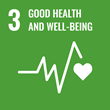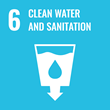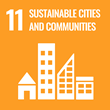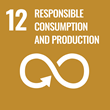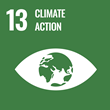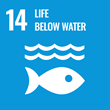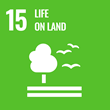Project information
Securing biodiversity, functional integrity and ecosystem services in DRYing rivER networks
(DRYvER)

- Project Identification
- 869226
- Project Period
- 9/2020 - 2/2025
- Investor / Pogramme / Project type
-
European Union
- Horizon 2020
- Climate action, environment, resource efficiency and raw materials (Societal Challenges)
- MU Faculty or unit
- Faculty of Science
- Cooperating Organization
-
Johann Wolfgang Goethe-Universität
Universidad de Barcelona
Friedrich-Schiller-Universität Jena
Royal Dutch Academy of Sciences
Universität Innsbruck
National Research Institute for Agriculture
University of Cantabria
River networks, hot spots of biodiversity among the most threatened on Earth, act as ecological corridors for species, safeguarding biodiversity at landscape and continental scales. They support crucial biogeochemical cycles and provide us with key ecosystem services, including purifying drinking water, regulating climate and producing food. River networks are metaecosystems, where aquatic communities, ecosystem functions and services are organised spatially by local environmental constraints (e.g. physical habitat) combining regional fluxes of organisms (dispersal) and resources (e.g. organic matter transport). These fluxes are threatened
by climate change and increased human water use, causing rivers and streams to dry up worldwide. Although drying river networks (DRNs) are prevalent and dramatically increasing in time and space, they have had little attention from scientists, policy makers and society. This lack of knowledge prevents us from predicting how climate change will alter river networks and affect their biodiversity,
ecosystem functions and services. Consequently, there is no effective biodiversity conservation strategy or ecosystem management of DRNs facing climate change.
Building on on-going EU efforts and a multidisciplinary team of experts from 15 countries in Europe and beyond, DRYvER will generate mechanistic understanding and predictive capability of how biodiversity and ecosystem functions and services are controlled at multiple spatial and temporal scales by climate change in DRNs. Working closely with stakeholders and end-users, the team will develop adaptive management strategies to mitigate or adapt to climate change effects in DRNs, including hydrological, ecological, NBS, socio-economic and policy perspectives. To broaden its geographical scope, foster synergies with active research
groups on DRNs and put the EU on the forefront of climate change adaptation, DRYvER includes 6 international partners, 3 of which from CELAC countries.
Sustainable Development Goals
Masaryk University is committed to the UN Sustainable Development Goals, which aim to improve the conditions and quality of life on our planet by 2030.
Publications
Total number of publications: 24
2025
-
Occurrence data for stream-dwelling macroinvertebrates from Central Europe
Data in Brief, year: 2025, volume: 58, edition: February, DOI
-
River Drying Causes Local Losses and Regional Gains in Aquatic Invertebrate Metacommunity Diversity: A Cross-Continental Comparison
Global Change Biology, year: 2025, volume: 31, edition: 2, DOI
2024
-
Comprehensive database of drying resistance and resilience traits from drying rivers across Europe
Year: 2024, type: Conference abstract
-
Disentangling environmental drivers of macroinvertebrate community structure: the role of stream drying and wastewater pollution
Year: 2024, type: Appeared in Conference without Proceedings
-
Dry stream channels as attractive habitats for multiple biotic groups
Year: 2024, type: Appeared in Conference without Proceedings
-
Flow intermittence changes the occupancy frequency distribution of stream chironomid assemblages
Year: 2024, type: Conference abstract
-
Chironomids (Diptera) from Central European stream networks: new findings and taxonomic issues
Biodiversity Data Journal, year: 2024, volume: 12, edition: Dec, DOI
-
Navigating through drying histories: switching roles of connectivityin Trichoptera metacommunity organisation
Year: 2024, type: Conference abstract
-
Role of invertebrate dispersal pathways in intermittent streams recolonisation after rewatering – an in situ experimental study
Year: 2024, type: Conference abstract
-
Vysychání toků jako faktor zásadně ovlivňující biologické hodnocení
Year: 2024, type: Requested lectures
